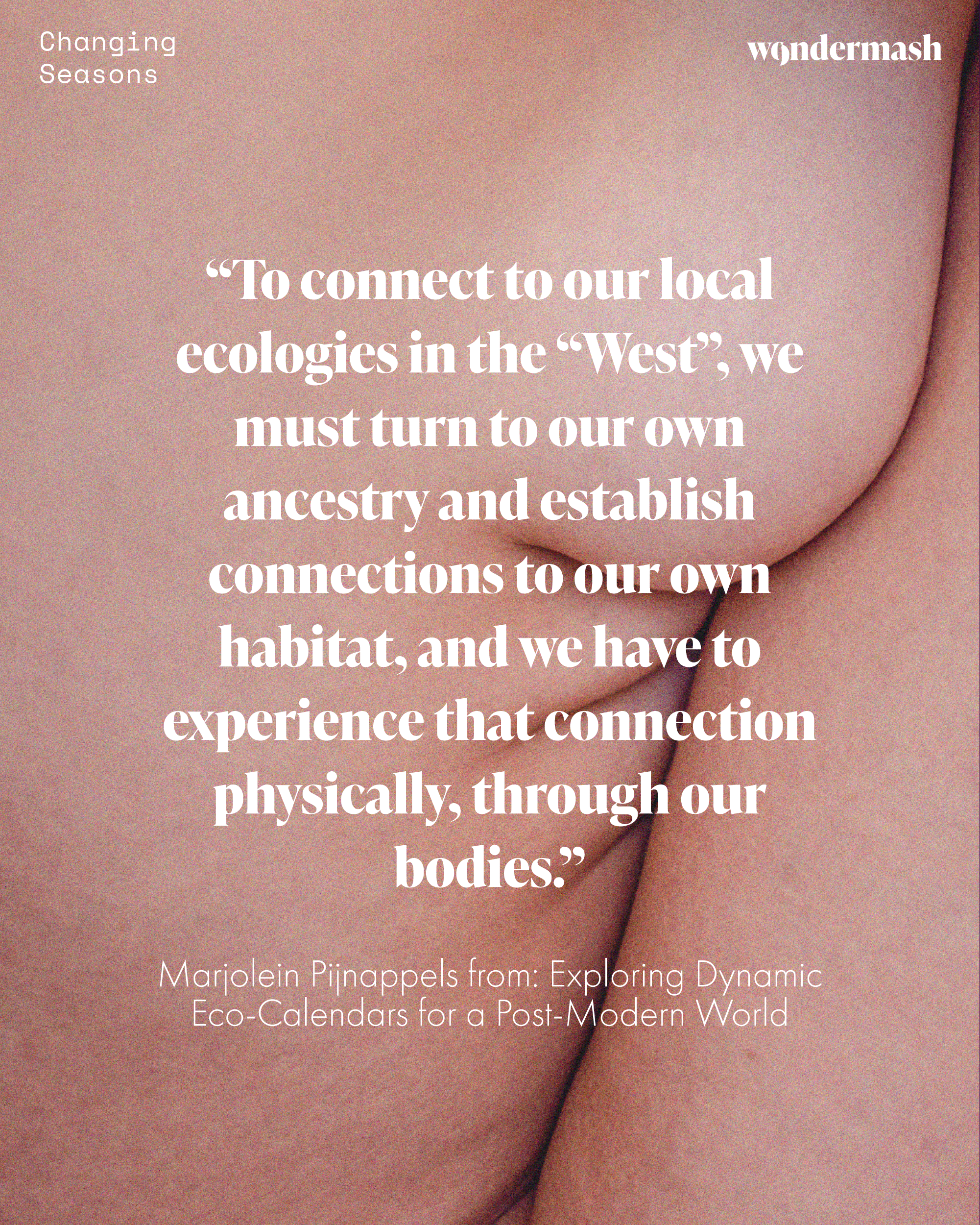
Part of CALENDARS project
Re-syncing Humans to Habitats
An exploration of different ways of time keeping
When we cut ourselves loose from natural cycles, we traded connection for comfort. Our disconnect from the natural cycles and seasonal woes has enabled us to grow and consume far beyond the carrying capacity of our planet’s ecosystem.
To restore the connection with our biological cycles and ecosystems, and explore how we can recalibrate this connection in a post-modern world, join me on a trip to the island of Pongso no Tao, before travelling to the future of a floating town in the south of the Netherlands.
Exploring dynamic eco-calendars for a modern world
Re-syncing Humans to Habitats is an ongoing research project by Marjolein Pijnappels, eploring the different ways humans can relate to the natural environment of which they are an integral part.
Exploring ecological calendars, most notably those of the peoples of the Pamir Mountains and the island of Pongo no Tao, Marjolein envisions pathways to future modern societies living attuned to ecological and geological cycles and time scales..
Wheel of the Year
Visualisation of wheel of the year, inspired by pre-christian Germanic-Celtic experiences of time.
(c) Marjolein Pijnappels
Symposium Re-patterning our Seasonal Cultures
How can ecological calendars guide our modern societies? At the symposium Re-patterning Our Seasonal Cultures 11-12 September I presented my research into ecological calendars that resulted in a speculative scenario for my own home region. This symposium is part of the CALENDARS at the University of Bergen, Norway. Below you find a pre-recording I made in preparation for the symposium.
Maaskant
A future modern society that is rooted in its surrounding habitat, communicating, and collaborating with other-than-human species, a floating community.
Excerpt from the speculative scenario “Maaskant” from: Pijnappels, MHJ (2023). An Exploration of how Ecological Calendars Could Guide our Modern World. Time and Society (submitted)










